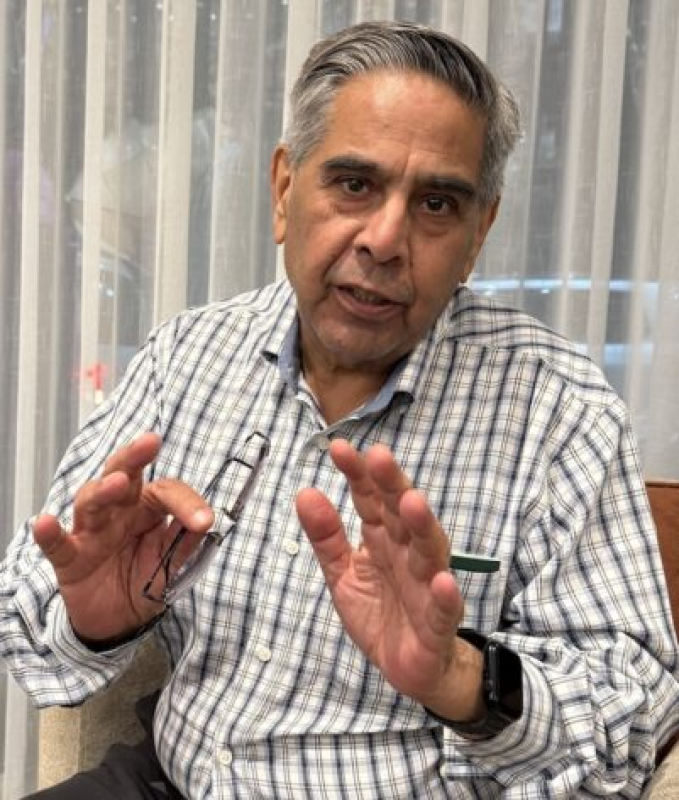- US Supreme Court Voids Donald Trump Global Tariffs |
- India looks forward to engaging with new govt in Bangladesh |
- No more running after doctors, services to reach doorsteps |
- ‘Revolutionary’ shift in economy, stock market soon: Amir Khashru |
- Stocks end week sharply lower as DSE, CSE indices tumble |
Rising Militarism Threatens Climate Finance Ahead of COP30

Ali T. Sheikh, a leading expert on sustainable development and climate change in Pakistan.
As COP30 approaches amid growing geopolitical tensions, rising right-wing extremism, and increasing militarism, Ali T. Sheikh, Pakistan’s leading expert on sustainable development and climate change, expressed concern over the future of climate finance.
Sheikh warned that escalating global military expenditures could severely impact climate commitments. NATO countries recently agreed to increase defense spending by 5 percent of GDP, prompting Sheikh to caution: “The axe will fall on climate finance. It could undo 30 years of COP cooperation.”
After three consecutive COPs hosted by oil-producing autocratic states, the upcoming conference in Brazil marks a notable shift. Sheikh praised Brazil’s stronger record on indigenous rights, forest, and biodiversity conservation.
He criticized dismissive statements by former US President Donald Trump on climate change and renewable energy, emphasizing that countries like Pakistan, ranking high on the Climate Risk Index 2025, face immediate and existential threats from climate events. Sheikh highlighted the catastrophic floods of 2022 and 2025, which submerged one-third of Pakistan and displaced millions.
Sheikh urged Pakistan to approach COP30 proactively, showcasing national projects like Sindh province’s flood-resilient housing initiatives and offering partnerships rather than seeking assistance. He also stressed the importance of regional cooperation with neighboring countries on climate challenges, including water management and monsoon data sharing.
Regarding climate finance, Sheikh emphasized that investment in climate adaptation and mitigation is essential, particularly for resource-limited developing nations. He noted that off-stage diplomacy, coalition-building, and private sector engagement often shape COP outcomes more than official proceedings.
Sheikh concluded that while COP30 faces numerous challenges, the conference also presents an opportunity to strengthen climate commitments, advance regional collaboration, and ensure vulnerable nations receive the support they urgently need.

